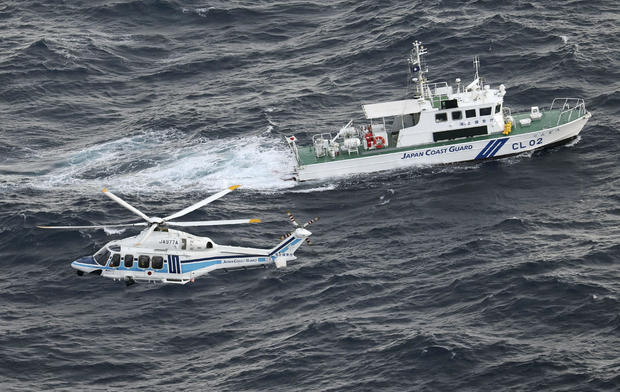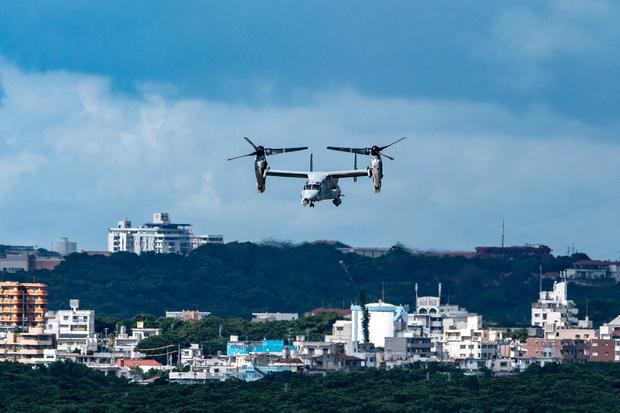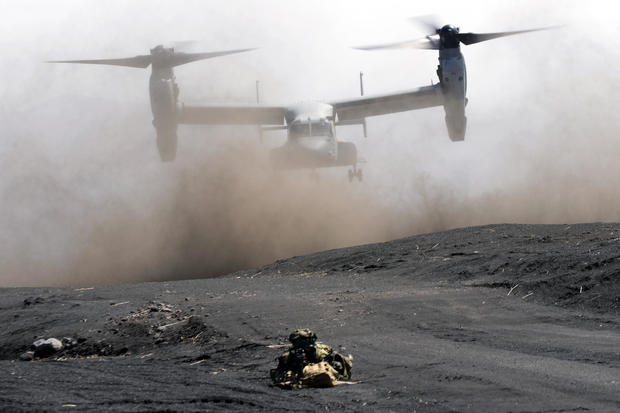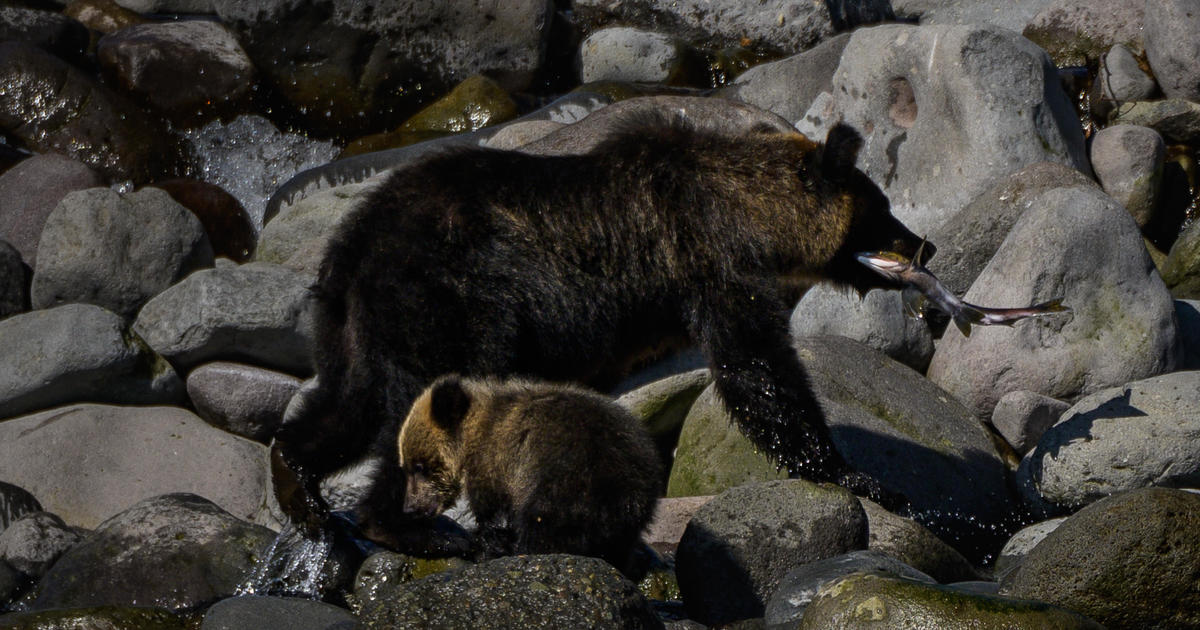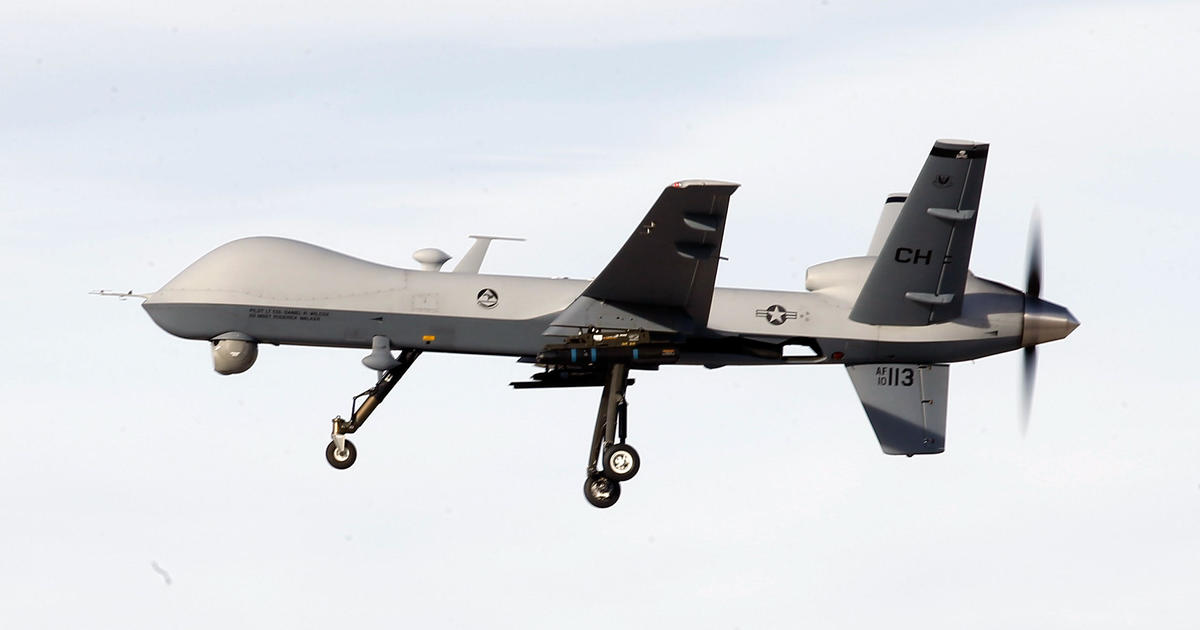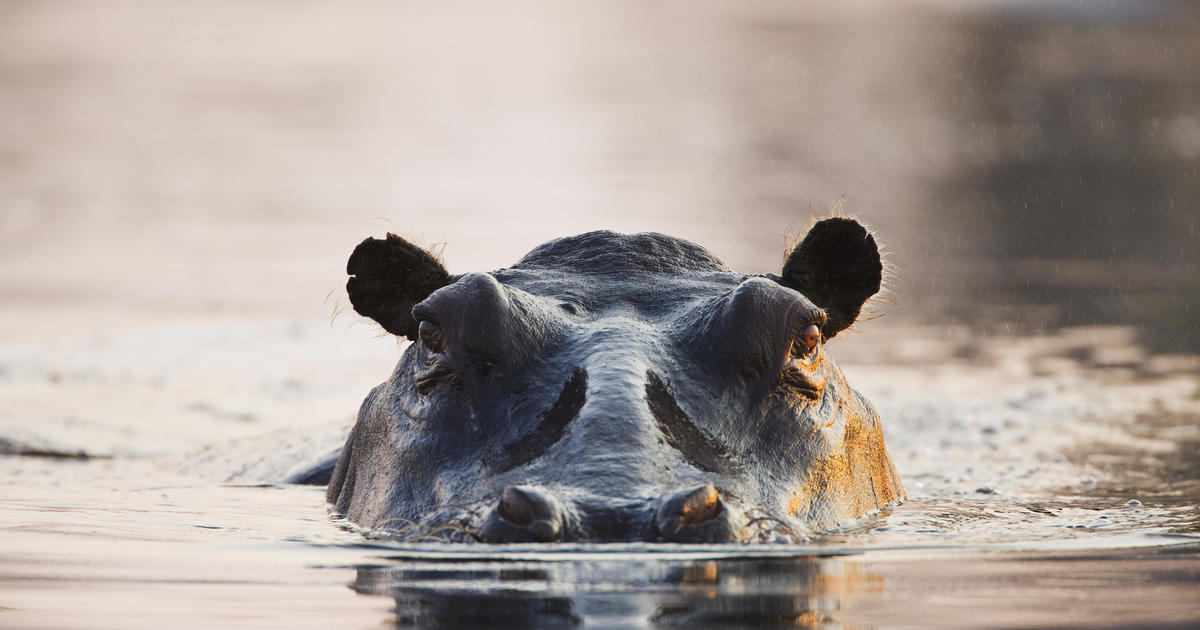U.S. military confirms Osprey crash in Japan left at least 1 dead, says search for 7 continues
Tokyo — The search for seven American service members continued Friday in Japan's waters, two days after a U.S. Air Force Osprey aircraft crashed into the sea off the tiny island of Yakushima, killing at least one person. The U.S. military was taking part in a major search and rescue operation launched immediately after the crash by Japanese authorities.
In a statement issued Friday, the U.S. Air Force Special Operations Command confirmed that the remains of one of the eight crew members from the Osprey had been found, as Japanese officials said soon after the search commenced. The whereabouts of the seven other airmen remained unknown Friday, the Air Force statement said, adding its "sincere gratitude to all the units and Japanese partners involved in helping us locate our Airmen."
The search and rescue included air, surface and subsurface searches of the water and coastlines in the vicinity of Yakushima, the U.S. military said. The Japan Coast Guard said Thursday that it had deployed side-scan sonar to scour the seabed for evidence of the ill-fated Osprey. Several pieces of debris believed to be from the aircraft were recovered from the water Wednesday, in addition to a large, empty orange life raft.
The U.S. Air Force said not long after the crash that the Osprey had been performing a routine training mission when it went down.
Ospreys' history of crashes, and tension with Japan
Japan's Minister of Defense said Thursday that the country, one of America's closest allies in Asia, had asked the U.S. to stop flying Ospreys over Japan until the aircraft could be confirmed safe.
Chief Cabinet Secretary Hirokazu Matsuno told reporters during a regular briefing on Friday that Japan had made that request "officially" of Washington, and that the government was "concerned that flights are being carried out without sufficient explanation about safety confirmation, despite repeated requests from Japan."
He called the U.S. continued use of the aircraft in Japan "deeply regrettable," and said it had caused "great anxiety to people" in the area where the plane went down.
The fact that the U.S. military has 30 Ospreys in service in Japan is evidence that it believes the planes are safe, but Japanese politicians needed to reassure a very nervous public.
Tuesday's crash took place very close to shore, fueling fear among the Japanese people after a series of incidents with the aircraft that one day, an Osprey could plunge out of the sky onto their heads and kill innocent civilians.
It's a contentious issue, and part of the wider contentious topic of the huge U.S. military presence in Japan, where some 50,000 American personnel are stationed.
While the bilateral defense alliance has remained solid, there's been tension for many years, and Tuesday's crash will fuel it — in part because, while Japan's Coast Guard scrambled ships and helicopters as soon as local fishermen raised the alarm, the U.S. military will likely take over the recovery and the investigation into the crash and, for the most part, exclude the Japanese.
In a statement shared Thursday on social media, U.S. Ambassador to Japan Rahm Emanuel expressed his "sincere gratitude to the Japanese Coast Guard, Japanese Self-Defense Forces, and local community and fishermen who are assisting in the search for the crew."
"Our thoughts are with the servicemembers and their families. First and foremost, our focus is on the ongoing search and rescue operations, and we're praying for a safe return," Emanuel said, adding: "The strength of an alliance isn't measured when times are good, but how we support each other in the face of adversity."
Japan is the only country in the world apart from the U.S. to fly Ospreys. The Japan Self-Defense Forces has 11 of the U.S.-made aircraft already, and a few more on order.
The defense ministry said Thursday that it would temporarily ground its own fleet.
There has been a spate of fatal U.S. Osprey crashes in recent years, most recently during a multinational training exercise on an Australian island in August, which killed three U.S. Marines and leaving eight others hospitalized. All five U.S. Marines on board another Osprey died the previous summer when their aircraft crashed in the California desert.
The U.S. military's investigation found that "dual hard clutch engagement" leading to engine failure led to that crash. The U.S. Marine Corps and Navy have reported similar clutch slips in their Ospreys and said they have worked to address the issue, according to The Associated Press.
An Osprey crashed in shallow water just off the Japanese island of Okinawa in 2016, but all the U.S. Marines on board survived that incident.
Despite the crashes, the versatility of the Osprey — which can take off and land like a helicopter but then tilt its rotors to fly as a turbo-prop plane — has made it a trusty workhorse for the U.S. military, especially for troop transport.
Both the Japanese and U.S. militaries will likely want to be able to continue using them in the highly strategic corner of the western Pacific.
Japanese reporters said they had seen multiple U.S. Ospreys take off Thursday from Okinawa, where the U.S. has its biggest military base in the region, so there was no sign that the U.S. was acting on Japan's request for a grounding of the aircraft.
CBS News' Duarte Dias in London and Eleanor Watson in Washington D.C. contributed to this report.
